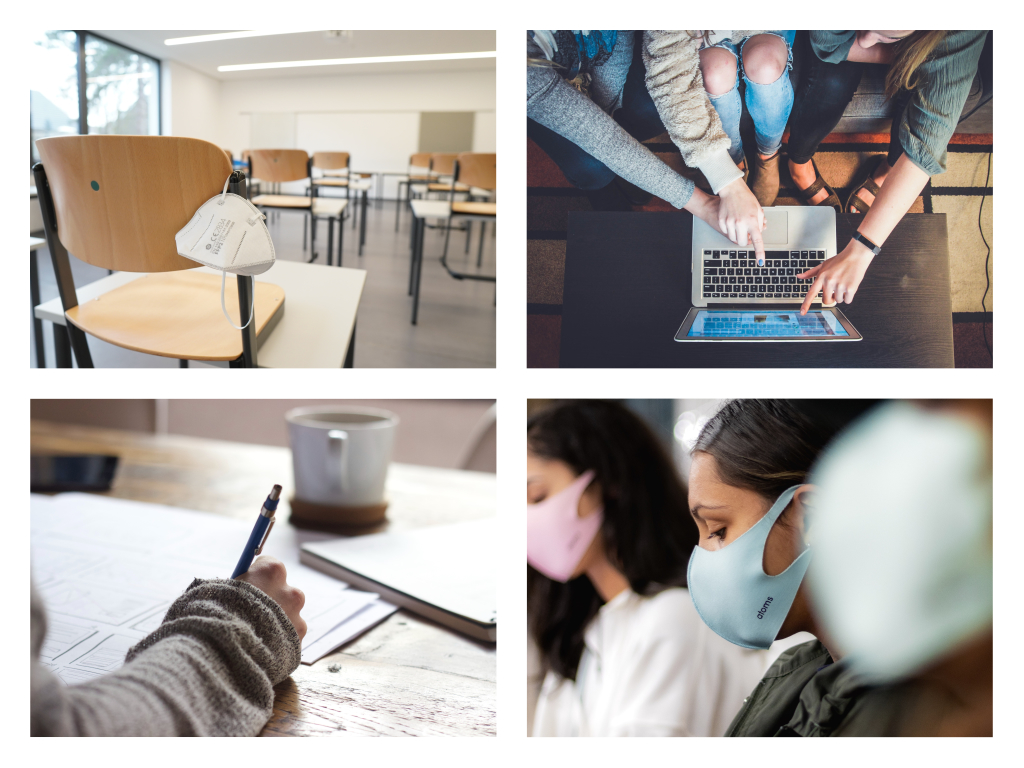Now that online classes may be a thing of the past, with vast majority of students opting to go back to in-person learning, being able to transition to the classroom culture after 18 months of remote learning can be daunting. Here are mindful ways for learners of all ages to get prepared for this school year in our new normal.
With continued uncertainty about so many things, one thing that’s for certain is that the school experience has been a rollercoaster over the past year. As back-to-school season begins, it may take some added time to adjust to the ever-changing school experience.
To clarify, we say “classroom” with the awareness that though the majority may be returning to physical classrooms, some students may continue learning in a virtual setting. The hybrid experience of being in physical classrooms and/or navigating through online courses can be challenging not just for students but their caregivers, teachers, school admins and the long list of everyone involved in the academic process. Everyone’s experience differs but the commonality is the importance of acknowledging it’s been an unprecedented time for schools and learners that required an increased level of patience and kindness towards ourselves and each other.

To help support the success of students adapting in a variety of academic settings, we share some back-to-school, healthy lifestyle tips applicable to learners of all ages. If you’re a caregiver for kids, you can apply the same tips we share below to them:
Notice and validate how you feel: Excited? Nervous? However, you feel about the experience of going back-to-school is valid. Take time to check-in with yourself (and each other if you’re a caregiver) every morning to observe your emotions and give yourself permission to feel them. It’s okay to feel low-energy or fearful of all the uncertainty, however you feel is valid – don’t add shame or guilt around any emotions. Awareness is always helpful, and the bonus is as you deal with your emotions during dedicated moments of reflections, there’s less of a chance they will pop-up and/or linger to distract you in class.
Go to bed earlier than usual the first month: After spending the summer months (or most of the school year for others) outside of the classroom, it can be exhausting to go back to full days in class. Our attention spans are pulled to adjusting to new settings, teachers, classmates all while learning new information that requires heightened focus and concentration. Ensuring we are properly rested needs to be a priority and it’s a good idea to get to bed at least 20-30 minutes earlier than usual to help ensure your rested enough for all the added energy adjusting to new routine the first few weeks take.

Set-up a school readiness routine: As one school day ends, lightly prepare yourself for the next one. This can be done at the end of each school day or before bed and involves simple action such as packing your backpack, eyeing your schedule for the next day and/or selecting your outfit. Putting in brief, mindful moments of thought into the upcoming school day the night before can help ensure a smoother start to the next morning.
Take breaks and get moving during them: Whether you’re in a formal school setting with timed breaks or navigating your own learning schedule, taking breaks is of utmost important. Not only does your mind need brief periods of rest but your body also benefits from continued check-ins and movement throughout the day. Be creative; movement comes in many forms from stretching between classes to taking a walk, keep yourself energized with mindful moments of checking-in with how your body is feeling and incorporating simple movements.

Seek opportunities to be social: Whether it be in-person or online meetups, put in effort to connect with your peers. With the social and physical distancing that’s taken place because of the pandemic, getting into a social mindset may not come as naturally to you as it has previously. A gentle way to ease back into socializing is to source clubs, forums and/or events based on your interests and hobbies. Conversations tend to flow easier when there’s a common ground for people to connect over.
Set a study schedule: Learning continues beyond the classroom and it’s easier to manage coursework when we plan for it. Create a study plan that sets specific time aside for each course on regular schedule and consistent basis. Even if you don’t have an assignment due, review class notes during the designated time to increase retention, bring to light any questions about comprehension you may have and prepare you in a slow and steady fashion for exams. Continued studying/review can help you avoid being in a stressful, last minute, cram for exams situation.
Main Image Photo Credit: www.unsplash.com
Rachna Sethi
Author
Rachna (@thesassyspiritual) is a graduate of the Applied Mindfulness Meditation program from the University of Toronto, a certified Educator with two bachelor degrees and a diploma in Art Therapy. She's dedicated to living with a compassionate approach. Committed to helping people integrate Mindfuln...














































































































